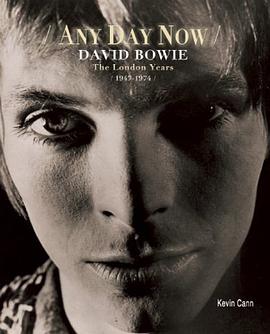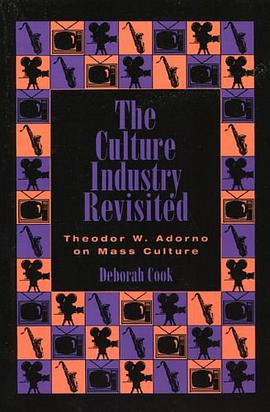

具體描述
Religion Online provides an accessible and comprehensive introduction to this burgeoning new religious reality, from cyberpilgrimages to neo-pagan chatroom communities. A substantial introduction by the editors presenting the main themes and issues is followed by sixteen chapters addressing core issues of concern such as youth, religion and the internet, new religious movements and recruitment, propaganda and the countercult, and religious tradition and innovation.
作者簡介
Helen A.Berger is Professor of Sociology at West Chester University. She is the
author of A Community of Witches: Contemporary Witches and Neo-Pagans in
the United States and primary author (with Evan Leach and Leigh Shaffer) of
Voices from the Pagan Census: A National Survey of Withces and Neo-Pagans in
the United States, both published by the University of South Carolina Press.
Gary R. Bunt is a Lecturer in the Department of Theology, Religious Studies
and Islamic Studies, University of Wales, Lampeter, United Kingdom. He has
published two books on Islam and the Internet: Virtually Islamic: Computer-
Mediated Communication and Cyber Islamic Environments (University ofWales
Press) and Islam in the Digital Age: E-Jihad, Online Fatwas and Cyber Islamic
Environments (Pluto Press).
Heidi Campbell is a Research Fellow with the Institute for Advanced Studies
in the Humanities at the University of Edinburgh (Scotland). She is the author
of several publications including “A Review of Religious Computer-Mediated
Communication Research” in Mediating Religion: Conversations in Media,
Culture and Religion, and a forthcoming text, Exploring Religious Community:
We Are One in the Network (Peter Lang Publishers).
Robert A.Campbell is Associate Principal–Academic Resources, at the University
of Toronto at Scarborough, where he also teaches courses on world religions.
His publications are on the sociology of science, the interaction of Science and
religion, and other aspects of the study of religion.
Douglas E.Cowan is Assistant Professor of Religious Studies and Sociology at
the University of Missouri-Kansas City. He is the author or editor of several
books, including The Remnant Spirit: Conservative Reform in Mainline Protestantism
(Praeger Publishers) and Cyberhenge: Magic, Metatechnology, and the
Neopagan Internet (Routledge).
Lorne L. Dawson is an Associate Professor of Sociology and Chair of the
Department of Religious Studies at the University of Waterloo, Waterloo,
Ontario, Canada.He has published several articles and book chapters on religion
and the Internet and is the author of Comprehending Cults: The Sociology of
New Religious Movements (Oxford University Press) and editor of Cults and
New Religious Movements: A Reader (Blackwell).
Douglas Ezzy (Ph.D.) is a Senior Lecturer in Sociology at the University of
Tasmania, Australia. He has also published Qualitative Analysis: Practice and
Innovation (Routledge) and Practising the Witch’s Craft (Allen & Unwin).
Wendy Griffin is a Professor of Women’s Studies at California State University,
Long Beach, and has been doing research into Goddess Spirituality since 1988.Her
most recent publications include “Goddess Spirituality and Wicca” in Her Voice,
Her Faith: Women Speak on World Religions(Westview Press), and Daughters of the
Goddess: Studies ofHealing, Identity and Empowerment (AltaMira Press).
Christopher Helland is a Ph.D. candidate in the Sociology of Religion at the
University of Toronto, Centre for the Study of Religion. His publications on
religion and the Internet include the book chapter “Online Religion/Religion
Online and Virtual Communitas” (JAI) Press and the article “Surfing for
Salvation,” in the journal Religion.
Jenna Hennebry is a Ph.D. candidate in the Department of Scoiology at the
University of Western Ontario in Canada. Her primary research interest is the
representation of migration, development, and globalization in academic
discourse and popular media.
Marilyn C. Krogh is an Assistant Professor in the Department of Sociology
and Anthropology at Loyola University, Chicago. Her primary research is in
Urban Sociology and inequality in labor markets.
Elena Larsen spent three years as a Research Fellow with the Pew Internet and
American Life Project. She researched and published several reports on the
intersection of the Internet with religion and government in the lives of
Americans.Her work on religion has included general population surveys, use
of the Internet by religious congregations, and pursuit of methodologies for
surveying religious minorities in the United States. She has also participated
in studies conducted by the University of Pennsylvania and the State University
of New York on the 2000 and 2002 elections as manifested on the Internet.
Mia Lövheim is a doctoral candidate in the Sociology of Religion at the
Faculty of Theology at Uppsala University, Sweden. Her research focuses on
the construction of religious identity among young men and women in
contemporary Sweden, primarily in relation to the Internet. She is currently
finishing her dissertation, “Intersecting Identities: Young People, Religious
Identities, and Interaction on the Internet.”
Mark W.Macwilliams is an Associate Professor at St. Lawrence University and
the author of a number articles on religion and the Internet.
Stephen O’Leary is Associate Professor in the Annenberg School of Communication
at the University of Southern California. He is the author of Arguing
the Apacalyse (Oxford University Press 1994), and his current research focuses
on religion, rhetoric, technology, and communication ethics.
Brooke Ashley Pillifant graduated with an MA in Sociology from Loyola
University of Chicago. She is currently leading a research team for Louisiana
State University Health Science Center and Xavier University of Louisiana
investigating the utilization of pharmacists to deliver a brief motivational intervention
in order to reduce alcohol levels in low-income minority populations.
Charles S. Prebish is Professor of Religious Studies at the Pennsylvania State
University.He is the author or editor of fifteen books, the most recent of which
are Westward Dharma: Buddhism beyond Asia and Buddhism in the Modern
World: Adaptations of an Ancient Tradition. He is also a founding Coeditor of
the Journal of Buddhist Ethics and the Journal of Global Buddhism.
Glenn Young is an interdisciplinary Ph.D. candidate in Religious Studies and
English at the University of Missouri–Kansas City.
目錄資訊
讀後感
評分
評分
評分
評分
用戶評價
相關圖書
本站所有內容均為互聯網搜索引擎提供的公開搜索信息,本站不存儲任何數據與內容,任何內容與數據均與本站無關,如有需要請聯繫相關搜索引擎包括但不限於百度,google,bing,sogou 等
© 2025 onlinetoolsland.com All Rights Reserved. 本本书屋 版权所有




















